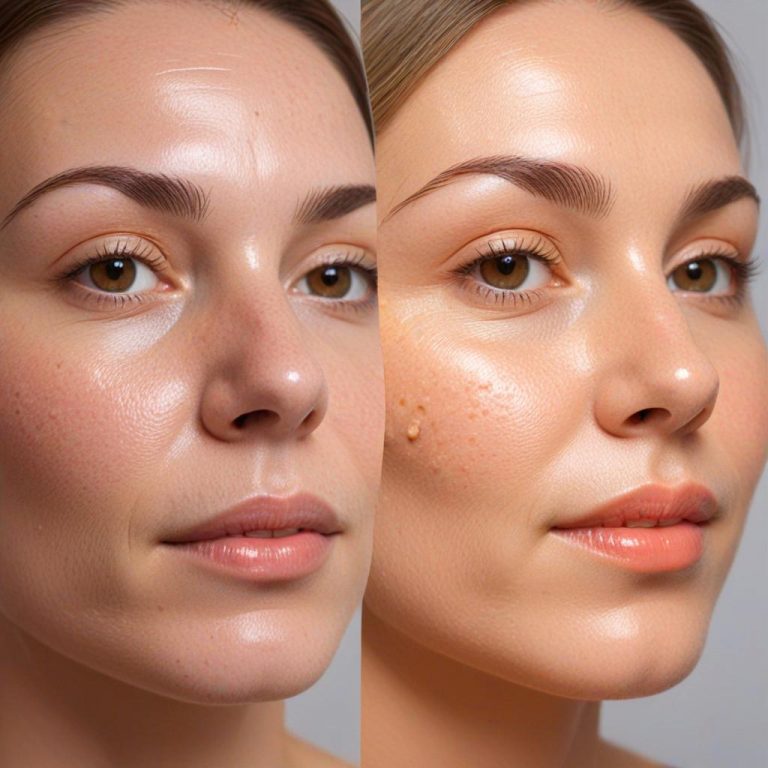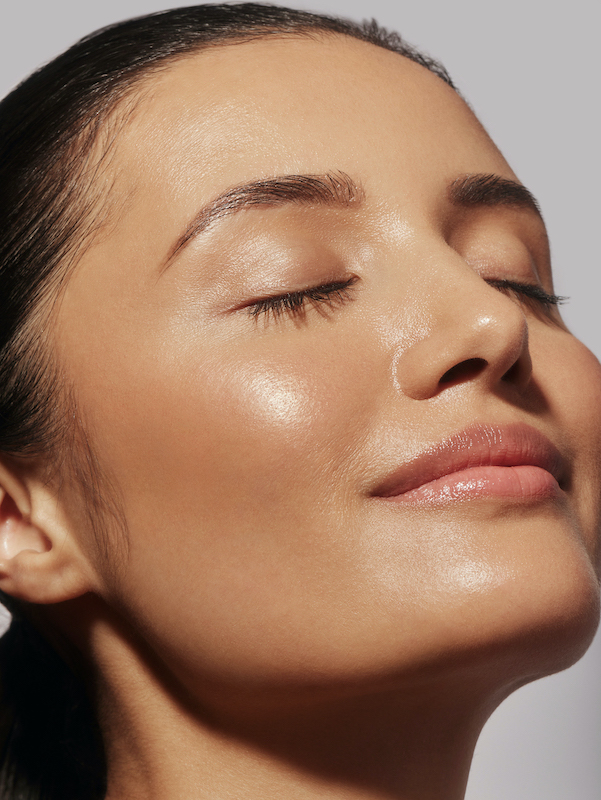Get Radiant Skin: Your Halo Glow Beauty Guide!
Ever wondered how some people effortlessly sport that enviable, lit-from-within complexion? Achieving radiant skin with a halo glow isn't about luck; it's about understanding your skin and adopting a targeted, consistent approach. In the realm of beauty ideals, the pursuit of "radiant skin with halo glow" often feels like chasing an elusive dream. However, achieving that coveted luminosity is within reach with the right knowledge and skincare practices.
The concept of glowing skin transcends mere aesthetic appeal. It's a reflection of overall well-being, signaling hydration, health, and vitality. A luminous complexion can significantly boost self-esteem and project an image of confidence. Ultimately, the quest for radiant skin is about more than just vanity; it's about investing in yourself and nurturing your skin's health. The journey to glowing skin involves understanding what constitutes a healthy complexion and then implementing a strategic skincare routine that addresses individual needs.
| Category | Information |
|---|---|
| Concept | Radiant Skin with Halo Glow |
| Definition | A luminous, radiant, and youthful complexion with a natural sheen and even tone. Implies overall health and vitality. |
| Key Elements | Hydration, Even Skin Tone, Smooth Texture, Reflective Surface |
| Internal Factors Affecting Glow | Genetics, Hormones, Diet, Sleep, Stress Levels |
| External Factors Affecting Glow | Sun Exposure, Environmental Pollution, Skincare Routine |
| Essential Skincare Steps | Cleansing, Exfoliating, Toning, Serum Application, Moisturizing, Sun Protection |
| Key Ingredients for Radiance | Vitamin C, Niacinamide, Hyaluronic Acid, Retinoids, Alpha Hydroxy Acids (AHAs) |
| Importance of Hydration | Maintains skin plumpness, enhances light reflection, prevents dryness and dullness. |
| Role of Sunscreen | Protects against UV damage, prevents hyperpigmentation, preserves skin's youthful appearance. |
| Lifestyle Factors | Regular exercise, adequate sleep, balanced diet, stress management. |
| Professional Treatments | Chemical peels, microdermabrasion, laser resurfacing, microneedling. |
| Reference Website | American Academy of Dermatology |
Glowing skin is defined as a complexion that appears luminous, radiant, and youthful. It possesses a natural sheen, an even tone, and a smooth texture that reflects light effectively. This desirable appearance results from optimal skin health, hydration, and effective light reflection. Several factors contribute to skin's glow, both internal and external. Internal elements include genetics, hormonal balance, diet, and sleep quality. External factors encompass sun exposure, environmental pollutants, and, crucially, the skincare routine adopted. A comprehensive understanding of these elements is essential for achieving and maintaining a radiant complexion.
- Ari Melbers Msnbc Journey From Roundtable To The Beat Beyond
- Hyungrys Temporary Replacement Ep 3 A Deep Dive More
Serums play a pivotal role in enhancing skin's radiance. Formulations containing vitamin C, niacinamide, or other brightening ingredients can significantly improve skin tone and luminosity. Vitamin C, a potent antioxidant, protects against free radical damage and boosts collagen production, resulting in brighter, firmer skin. Niacinamide, a form of vitamin B3, helps to reduce the appearance of pores, even out skin tone, and strengthen the skin's barrier function. Serums are typically applied after toning but before moisturizing, allowing their active ingredients to penetrate the skin effectively. The specific serum chosen should be tailored to address individual skin concerns, such as hyperpigmentation, dullness, or uneven texture.
Hydration is fundamental to achieving a glowing complexion. A suitable moisturizer is crucial for locking in moisture and maintaining skin's plumpness. Look for ingredients like hyaluronic acid, glycerin, and ceramides, which are known for their hydrating and skin-replenishing properties. Hyaluronic acid is a humectant that attracts and retains moisture, effectively hydrating the skin. Ceramides are lipids that help to strengthen the skin's barrier function, preventing moisture loss. Regular moisturizing helps to maintain skin's elasticity, preventing dryness and dullness. The type of moisturizer used should be appropriate for the individual's skin type, with lighter formulations preferred for oily skin and richer creams suitable for dry skin.
Sunscreen is an indispensable component of any skincare routine aimed at achieving radiant skin. Never skip sunscreen during the day, regardless of the weather. Sunscreen protects the skin from harmful UV rays, which can cause premature aging, hyperpigmentation, and even skin cancer. Choose a broad-spectrum sunscreen with an SPF of 30 or higher and apply it liberally to all exposed areas of the skin. Reapply sunscreen every two hours, especially if you are sweating or swimming. Consistent sunscreen use is essential for preserving skin's youthful appearance and preventing sun damage that can compromise its radiance.
- Hyungry Temporary Replacement Ep 3 What Fans Are Saying
- Navarre Beach Drowning Recent Tragedies Safety Concerns
Understanding the science behind skin glow is crucial for tailoring skincare routines effectively. Skin radiance depends on the interaction of light with the skin's surface. A smooth, even texture allows for optimal light reflection, resulting in a luminous appearance. Factors that can compromise skin's radiance include dryness, uneven tone, and surface irregularities. By comprehending these mechanisms, individuals can select skincare products and treatments that target specific concerns and enhance light reflection. For instance, exfoliating regularly helps to remove dead skin cells, revealing a smoother, more radiant surface. Addressing hyperpigmentation with brightening ingredients can even out skin tone and improve luminosity.
By following a consistent skincare regimen that incorporates cleansing, exfoliation, toning, serum application, moisturizing, and sun protection, individuals can achieve the radiant skin they desire. Each step plays a vital role in maintaining skin health and enhancing its natural glow. The key is to select products that are appropriate for your skin type and to use them consistently. Patience is also essential, as it may take several weeks or months to see noticeable results. However, with dedication and the right approach, achieving radiant skin is within reach.
Let's delve into the steps for achieving glowing skin in detail, providing a practical guide for incorporating these practices into your daily routine. This detailed exploration will cover the specific techniques and product recommendations that can help you unlock your skin's natural radiance. By understanding the nuances of each step, you can optimize your skincare routine for maximum effectiveness.
Cleansing is the foundation of any effective skincare routine. Begin by wetting your face with lukewarm water, which helps to open up pores and prepare the skin for cleansing. Avoid using hot water, as it can strip the skin of its natural oils, leading to dryness. Apply a small amount of cleanser to your fingertips and gently massage it into your skin using circular motions. Focus on areas that are prone to oiliness or congestion, such as the T-zone (forehead, nose, and chin). Rinse thoroughly with lukewarm water and pat your skin dry with a soft towel. Choose a cleanser that is appropriate for your skin type, avoiding harsh or drying ingredients that can irritate the skin. For dry skin, opt for a creamy or hydrating cleanser. For oily skin, a gel-based or foaming cleanser may be more suitable. Double cleansing, which involves using an oil-based cleanser followed by a water-based cleanser, can be particularly beneficial for removing makeup and impurities.
Regular physical activity is beneficial for overall health and can also enhance your skin's appearance. Exercise increases blood circulation, delivering more oxygen and nutrients to skin cells. This improved circulation can result in a healthy glow and a more vibrant complexion. Aim for at least 30 minutes of moderate-intensity exercise most days of the week. Activities like brisk walking, jogging, swimming, or cycling can all contribute to improved skin health. In addition to its direct benefits, exercise can also help to reduce stress levels, which can positively impact skin health. Stress can trigger inflammation and breakouts, so managing stress through exercise can lead to clearer, more radiant skin.
Adequate sleep is essential for skin rejuvenation and maintaining a healthy glow. During sleep, the body repairs and regenerates cells, including skin cells. Aim for 7-9 hours of quality sleep each night to allow your skin to recover and revitalize. Sleep deprivation can lead to dullness, dark circles under the eyes, and an overall tired appearance. To optimize your sleep, create a relaxing bedtime routine that promotes restful sleep. This may include taking a warm bath, reading a book, or practicing relaxation techniques like meditation or deep breathing. Avoid screen time before bed, as the blue light emitted from electronic devices can interfere with sleep. A consistent sleep schedule can also help to regulate your body's natural sleep-wake cycle, improving the quality of your sleep.
Embark on your journey to beautiful skin with a commitment to consistency and a personalized approach. Remember that radiant skin is not just about genetics; it's about adopting healthy habits and a skincare routine that meets your unique needs. With patience and dedication, you can achieve the luminous complexion you desire. The key is to stay informed, adapt your routine as needed, and celebrate the progress you make along the way. The pursuit of radiant skin is a continuous journey, but the rewards are well worth the effort.
Exfoliating is a crucial step in removing dead skin cells and revealing a brighter, smoother complexion. Exfoliation can be achieved through physical or chemical methods. Physical exfoliants include scrubs with small particles, such as sugar or jojoba beads, which manually buff away dead skin cells. Chemical exfoliants contain acids, such as alpha hydroxy acids (AHAs) or beta hydroxy acids (BHAs), which dissolve the bonds between dead skin cells. AHAs, like glycolic acid and lactic acid, are effective for improving skin texture and tone. BHAs, like salicylic acid, are particularly beneficial for oily or acne-prone skin, as they can penetrate pores and remove excess sebum. Exfoliate 1-2 times per week, depending on your skin type and sensitivity. Avoid over-exfoliating, as this can irritate the skin and lead to redness or inflammation.
Toning helps to balance the skin's pH level and prepare it for the absorption of serums and moisturizers. Choose an alcohol-free toner to avoid drying out the skin. Toners can also contain beneficial ingredients, such as antioxidants or hydrating agents, which can further enhance the skin's health. Apply toner after cleansing and exfoliating, using a cotton pad to gently swipe it across your face. Allow the toner to dry completely before proceeding with the next steps in your skincare routine.
Applying serums is an essential step to infuse concentrated ingredients into the skin. As previously discussed, serums containing vitamin C, niacinamide, or other brightening agents can enhance skin's radiance. Apply these after toning for optimal results. Serums are typically lightweight and easily absorbed, delivering active ingredients directly to the skin cells. Other beneficial serum ingredients include hyaluronic acid for hydration, retinol for anti-aging, and peptides for collagen production. Choose serums that target your specific skin concerns, such as hyperpigmentation, wrinkles, or dryness.
Following serum application, it's essential to keep your skin hydrated with a suitable moisturizer. Look for ingredients that lock in moisture and give your skin a dewy finish. As mentioned earlier, hyaluronic acid, glycerin, and ceramides are excellent hydrating ingredients. The type of moisturizer you choose should depend on your skin type. For dry skin, opt for a richer cream or balm. For oily skin, a lightweight lotion or gel may be more suitable. Apply moisturizer to your face and neck, using gentle upward strokes. Moisturizing helps to maintain skin's elasticity, preventing dryness and fine lines.
Sunscreen remains an indispensable component of your daily skincare regimen. Never skip sunscreen during the day, even on cloudy days. UV rays can penetrate clouds and cause damage to the skin. Choose a broad-spectrum sunscreen with an SPF of 30 or higher. Apply sunscreen liberally to all exposed areas of the skin, including your face, neck, and hands. Reapply sunscreen every two hours, especially if you are sweating or swimming. Sunscreen helps to protect your skin from sun damage, preventing premature aging, hyperpigmentation, and skin cancer.

Your Ultimate Guide to Radiant Skin Top Face Care Tips

The Ultimate Guide to Achieving Radiant and Glowing Skin with Skin

3 Effective Ways to Achieve Radiant Glowing Skin INTU WELLNESS